Clan MacDougall Society of North America
Clan MacDougall Society of North America represents two clans:
Clan MacDougall of Argyll and Clan MacDowall of Galloway.
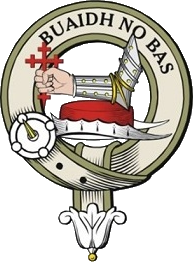
Clan MacDougall of Argyll

|
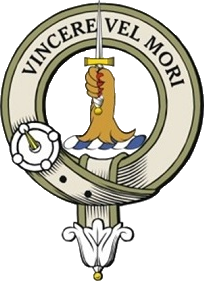
Clan MacDowall of Galloway

|
|
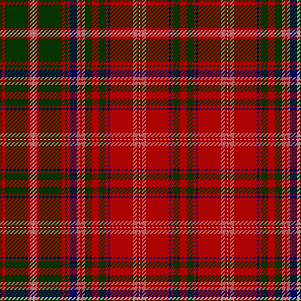
MacDougall Modern
|
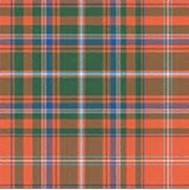
MacDougall Ancient
|
_Tartan.jpg)
MacDowall
|
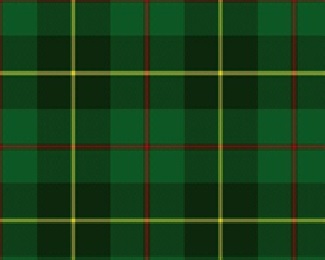
Galloway District
|
CREST: An arm in armour holding a cross.
MOTTO: Buaidh No Bas: Conquer or Die
|
CREST: An arm upright holding a sword.
MOTTO: Vincere vel Mori: Win or Die
|
Name Variants Associated With Clan MacDougall of Argyll:
Carmichael (of Argyll only), Macgillemichael, Coul, MacCoul, McCoul, Cool, MacCool, McCool, Macoual, MacCowl, Conacher, McConacher, MacConacher, MacConcher, Coyle, MacCoyle, McCoyle, Dole, MacDole, MacDill, McDill, McDoll, Doual, MacDoual, McDoual, Macdoual, MacDool, Dougal, Dougall, Dougald, MacDougal, McDougal, McDougall, MacDougall, Mcdougal, MacDougald, McDougald, Dugal, Dugald, MacDugal, McDugald, MacDugle, MacDougle, Mcdougle, Dulothe, MacDulothe, Ewan, Ewen, MacEwan, Howell, MacHowell , McHowell, MacCowell, MacCowan, McCowan, McCown, Macowen, Livingston(e) (of Argyll only), MacKichan, McKichan, MacKickan, Lugash, MacLugash, MacLuke, MacLucas, Lullich, McLullich, MacCullich, MacCulloch, McCulloch, MacCullagh, MacClintock, McClintock, MacLinden, MacLintock, McLintock, M’Gowall, MacHale, McHale, MacNamell
Name Variants Associated With Clan MacDowall of Galloway:
Coul, MacCoul, McCoul, Cool, MacCool, McCool, Macoual, McHoul, Coyle, MacCoyle, McCoyle, Dole, MacDole, MacDill, McDill, McDoll, Doual, MacDoual, McDoual, Macdoual, MacDool, MacDouel, MacDouyl, M’Douwille, MacDuaelMacDuoel, MacDuel, MacDuhile, MacDull, MakDull, MacDuyl, Dowall, Duval, Duwall, MacDewell, MacDowal, MacDowall, MacDowell, McDowell, Macdowell, MacDowel, Macdowel, MacDowyl, MacDuwell, Dowdle, Dowler, Dowling, Dougal, Dougall, Dugle, MacDougal, McDougal, McDougall, MacDougall, Mcdougal, Kyle(of Clan MacDowall), M’Gowall, Mactheul
A Short History of Clan MacDougall of Argyll:
Mac means “son of” while the term “clan” comes from the Gaelic word for children. Thus, Clan MacDougall (Clann Mhic Dhùghaill) means “the children of the son of Dugal”. The name Dugal derived from the Gaelic words “dubh”meaning dark or black and “gall” meaning foreigner or stranger. Hence Dugal translates as “Dark Foreigner” or “Black Stranger” which was a Gaelic term for persons of Norse descent. Our clan’s heritage from the Gael and the Norse is shown in the present arms of the MacDougall Chiefs which quarter the lion of the ancient Scottish Kingdom of Dalriada and the black royal galley of the Norse. In 1164 Somerled died in the Battle of Renfrew fighting the forces of the King of Scots near the banks of the River Clyde. Dugal, his oldest living son, inherited the central portion of his father’s kingdom and became the founder and first Chief of Clan MacDougall. Our seagoing clan was based on the Hebrides isles of Mull, Coll, Tiree, Jura and Kerrera then owned by Norway, and on the Scottish mainland in Lorn and Argyll on the west coast of Scotland. In their twin roles of King of the Hebrides for Norway and ruler of Lorn for Scotland, Dugal and his successor Chiefs protected their islands and mainland territory with a ring of castles and a strong fleet of galleys. During the summer of 1249 King Alexander II of Scotland sailed to the Hebrides intent on taking these Norwegian owned isles for Scotland but he became sick and was forced to land on the island of Kerrera. He ordered Ewan the 3rd chief of clan MacDougall to surrender his Cairnburgh Castle in the Treshnish Isles (which was Norwegian property) to the Scottish Crown. Ewan refused and declared that he had already sworn feudal loyalty to King Haakon of Norway for his Norwegian lands. Alexander II exclaimed angrily – “No man can serve two masters!” to which Ewan calmly replied: – “One man can easily serve two masters if they are not enemies”. Alexander died on Kerrera shortly afterwards and Ewan then swore feudal allegiance for his territory on the mainland of Scotland to the new eight-year-old King Alexander III of Scots. When King Haakon of Norway gave Ewan the same choice in 1263, Ewan returned the Hebridean Isles to him and chose Scotland. King Haakon was defeated by the Scots at the Battle of Largs in 1263. When the Treaty of Perth of 1266 gave the Scots possession of the Hebrides, Alexander III then returned their old island possessions back to the MacDougalls. This was an early incident in the many struggles to come.
For a printable pdf with more information, click
HERE
A Short History of Clan MacDowall of Galloway:
The proper spelling of the clan name is MacDowall with the letter “D” capitalized. The family originated in Galloway in what is now south west Scotland as descendants of Duegald who was a grandson of Prince Fergus of Galloway and the second son of Uchtred Lord of Galloway. Duegald the eponymous founder of the family is mentioned in the Melrose Chronicle as having been killed in a battle in 1185 while supporting his older brother.
For the next century Duegald’s family were known as the Macdougalls in Galloway with their name spelt with a small letter “d”. They have no proven relation to the MacDougalls of Argyll though their shared original Gaelic name of “Mac Dou gall” meaning “son of the black stranger” suggests that both have a Norse heritage. The name “Black Foreigner” or “Black Stranger” was the early Gaelic term or nickname for a Dane, later extended to other Norsemen and by Duegald’s time it applied more generally to persons of Norse descent. Duegald’s descendants’ family name of “Macdougall” came from adding the Gaelic prefix “Mac” meaning “son of” in front of his name.
On 7 July 1292 the family name spelling of Macdougall in Galloway was written in modified form to distinguish it from the Highland clan MacDougall of Argyll in a time period when leaders of both were required to sign the oath of fealty known as the Ragman Roll as required of the Scottish nobility by King Edward I of England. The Macdougall in Galloway family name spelling was modified when the letters “ug” were changed to “w” (i.e. “uu” pronounced “oo”) in a Norman transliteration introduced under King Edward I of England. However the Makerston branch of the family founded circa 1370 on the Borders in south east Scotland carried on for centuries using the original name of “Macdougal” or “Makdougal” always using the small letter “d’.
In later centuries the spellings of Macdowall with a capital “D” and also with the letter “e” as in “MacDowell” became common especially after some emigrated from Galloway across to nearby Ireland during the Plantations of Ulster in the early 1600’s, and then later from Ireland on to North America. As a result most of the members of the family now live in the United States where the “e” spelling is most commonly found but many other variant spellings of our name exist as well.
For a printable pdf with more information, click
HERE



_Tartan.jpg)
